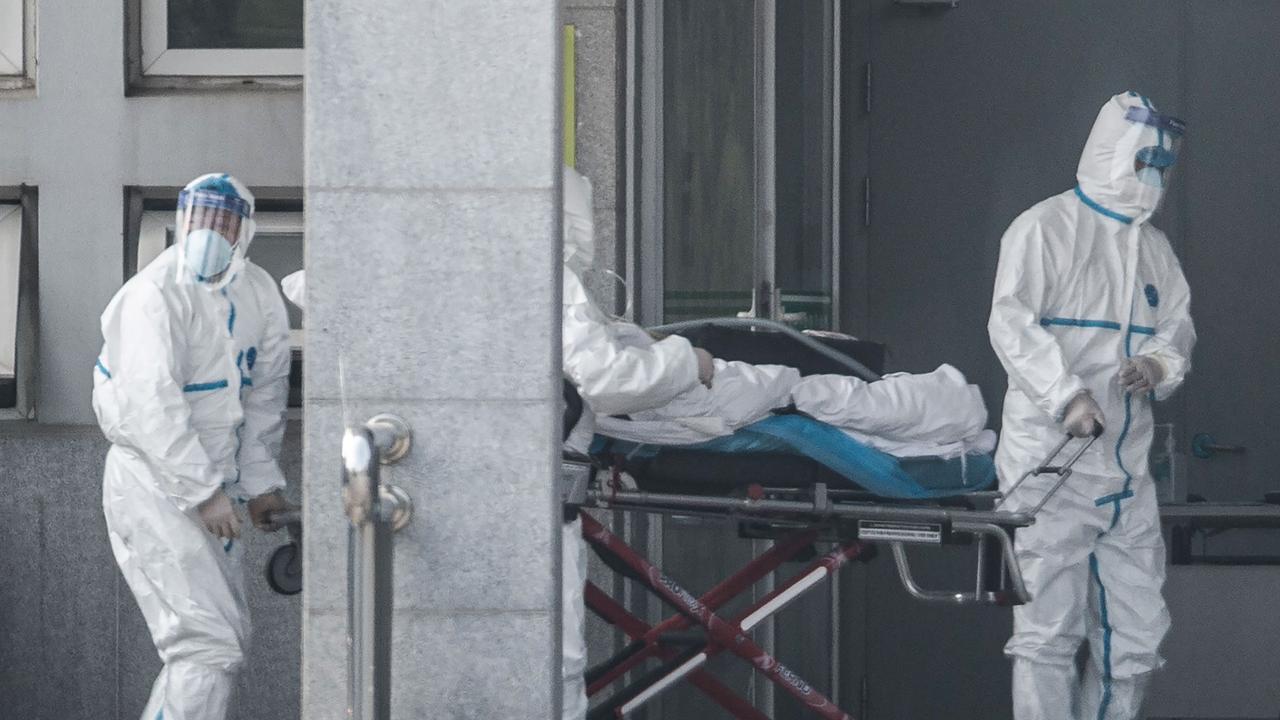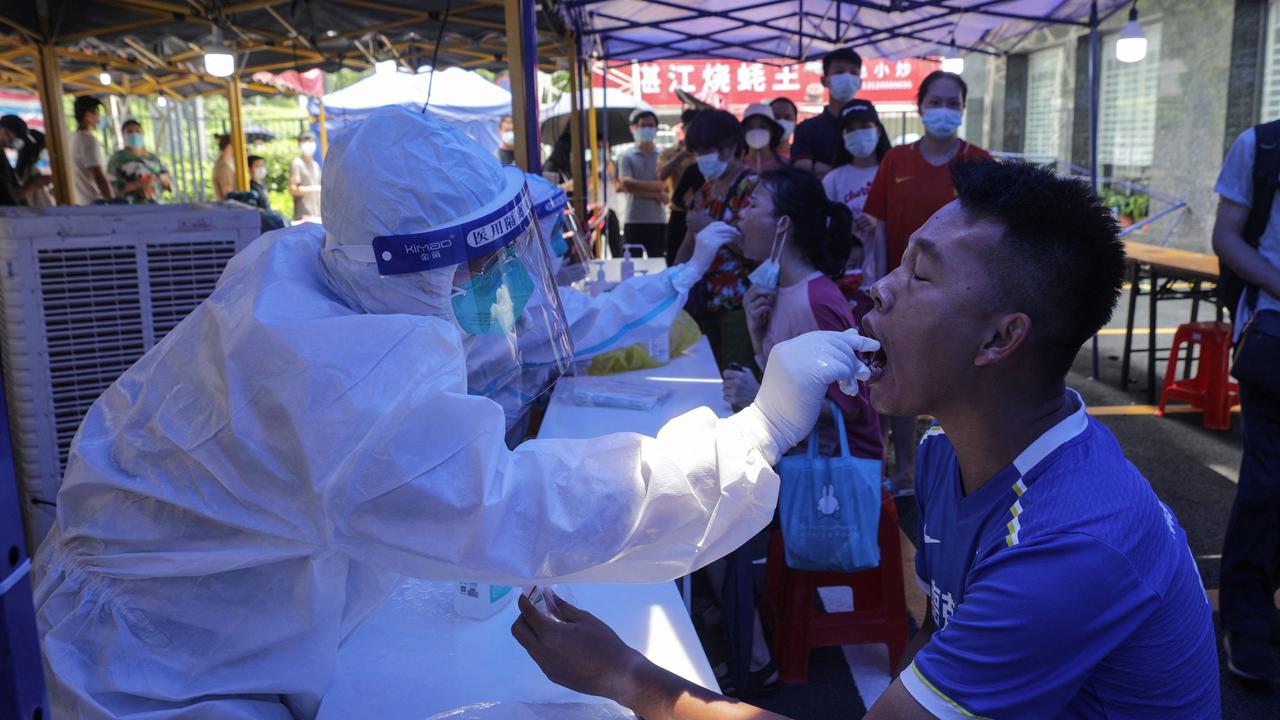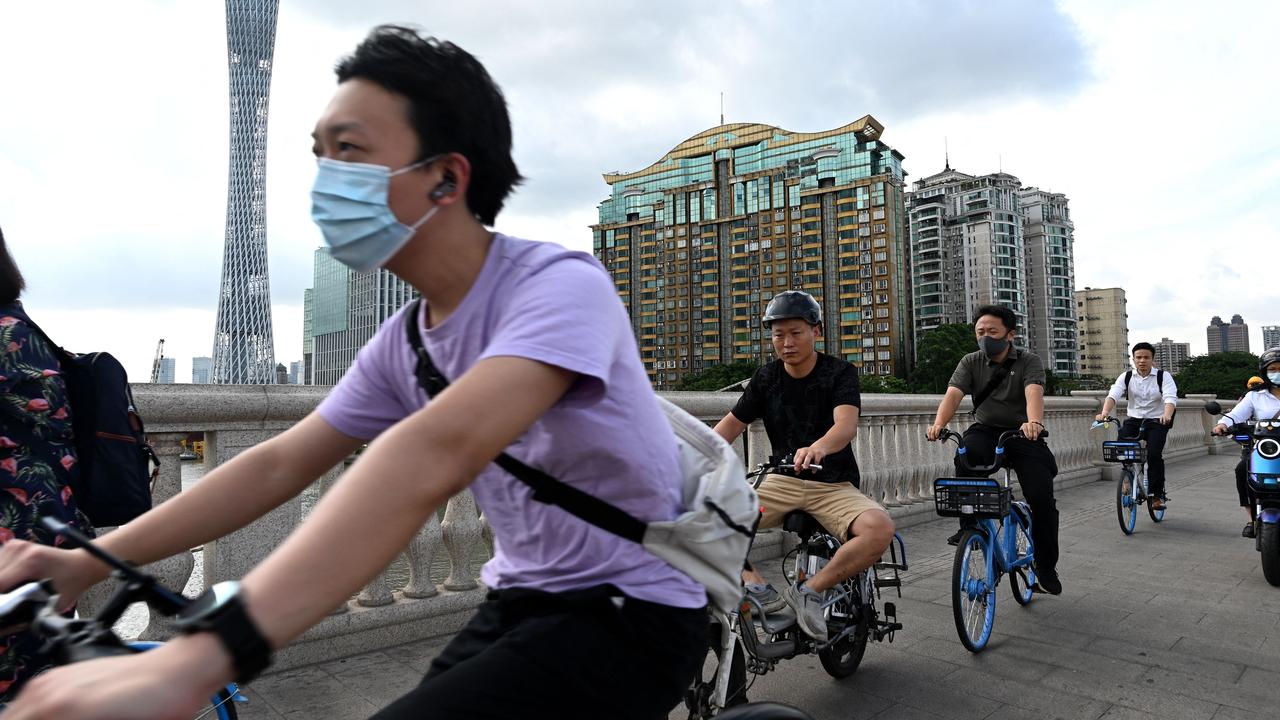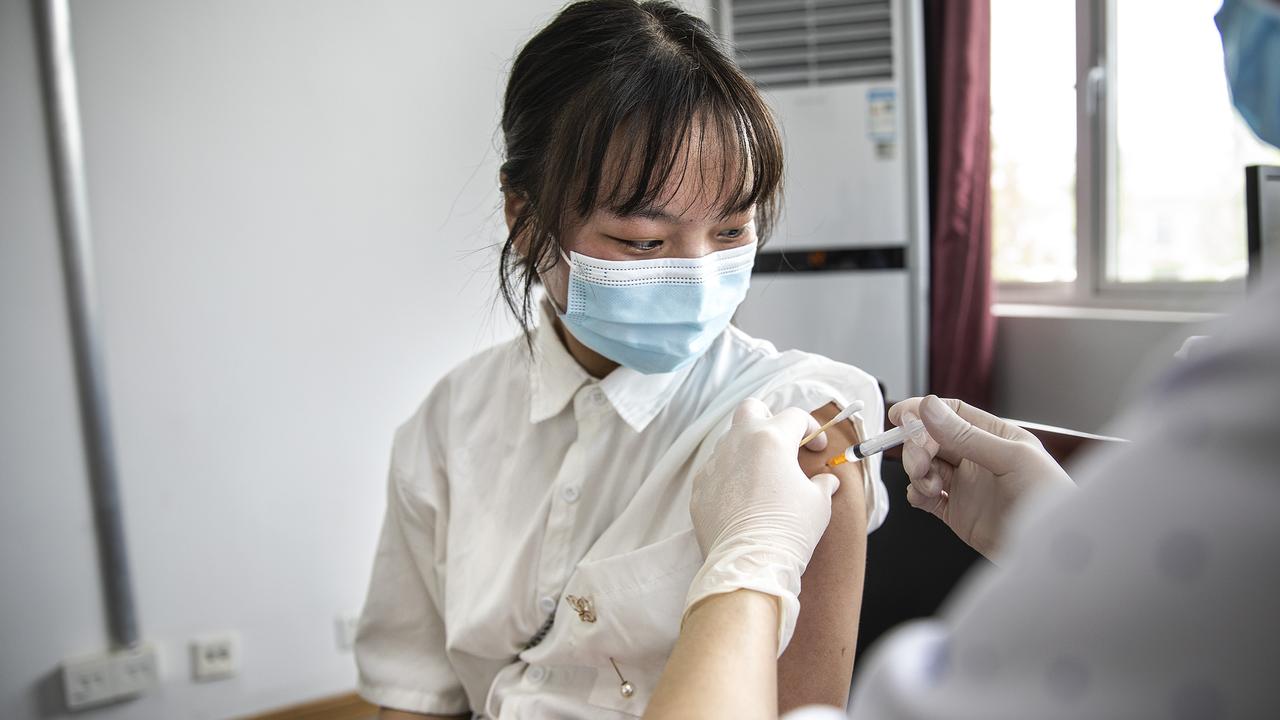China hit by devastating Covid outbreak in the city of Guangzhou
Life had returned to normal in China while the rest of the world was ravaged by Covid-19, but now the superpower has a serious problem.
Since Covid-19 first emerged in China, the superpower has made a remarkable recovery by putting its foot to the throat of any trace of the virus within its borders.
While much of world was in lockdown last year, images were beamed around the globe of wild parties in Wuhan and life continuing without a hitch in the nation of 1.4 billion people.
Its draconian lockdowns and heavy-handed attempts to crush the virus drew criticism from human rights groups, but the strategy appeared to be working.
However, in the past few weeks China has found itself in an uncomfortable situation, the likes of which it hasn’t faced during the pandemic.
An outbreak of the dangerous new Delta variant in the southern city of Guangzhou is spreading despite an incredible effort to contain it, and it’s spreading faster than any other previous outbreak in China.
RELATED: China’s incredible vaccination rate


Spreading like never before
The first local case of the variant, which has caused thousands of deaths in India, was picked up on May 21 – a 75-year-old woman who visited a restaurant.
In almost three weeks, that has grown to 157 cases in the latest figures and roughly 10 new infections are being detected per day.
In a mammoth operation, the city tested practically its entire population of 18.7 million between Sunday and Tuesday, some of them for the second time. Over 27 million people – more than the entire population of Australia – have been tested since May 26.
Authorities have also put suburbs with a total of more than 180,000 residents into total lockdowns, with pretty much nobody allowed out except for medical testing.
However, the virus has spread quickly in a cluster of restaurants in the city. Now authorities there have warned it is spreading faster than any previous outbreak in China.
“The epidemic faced by Guangzhou this time is an unprecedented opponent, and it requires more resolute and decisive measures to deal with it,” Zhang Zhoubin, deputy director of the Guangzhou Centre for Disease Control, said at a news conference.
RELATED: Nine people may be key to virus origins

China’s tough new measures
Some of the measures China is now taking to stop the virus are unlike anywhere else in the world – including incredibly strict new quarantine rules and anal swabs.
Travellers from dozens of countries have to spend two weeks in employer-supervised quarantine even before flying to China.
Once there, travellers must spend at least two weeks and sometimes three or longer in government-supervised quarantine, even if they are fully vaccinated.
Continuous testing brings up the possibility of false positives, which in turn leads to more tests and additional days or weeks in isolation.
A German national who flew into Shanghai last month said he was detained in a hospital isolation room for three days because he tested positive for antibodies, which he believes came from a second vaccine dose.
RELATED: Extreme peril now facing Australia

He told The New York Times nurses took his blood twice a day and performed six throat swabs, four nasal swabs and two anal swabs daily in a room that had no towels, no toilet paper and no television, and the bed was a steel plate with a thin mat.
Chinese doctors have claimed the invasive anal swab procedure can be more effective in detecting the virus than nasal swabs, however this has been disputed by experts outside of China.
Issues with Chinese vaccine
For more than a week, an average of about 20 million people have been vaccinated against Covid-19 every day in China. Again, for context, Australia’s population is just under 27 million.
China has administered just over 800 million doses to its population of about 1.4 billion people. At the current rate, it could fully vaccinate its whole population in around three months.
But it is unlikely to be able to maintain this pace, according to Raina Macintyre, an epidemiologist at the University of New South Wales.
She said most people vaccinated so far have been in cities, such as Beijing – where 87 per cent of adults have received at least their first shot – but the job will get harder as the campaign fans out to rural areas and small villages.
But there are also concerns being raised about how effective China’s vaccines are after spikes in infections in nations like Seychelles and Mongolia that have had large numbers of infections despite high vaccination rates.

Both have used the Sinopharm vaccine from China, although the Seychelles also relied partly on AstraZeneca vaccines.
Countries such as Saudi Arabia, the UAE, Bahrain and Philippines have expressed concerns over the approval granted to Chinese vaccines and their efficacy.
The Delta variant now circulating in Guangzhou has also shown the ability of the virus to infect some people who had already been vaccinated.
China has developed two Covid-19 vaccines that have been approved by the World Health Organisation (WHO) – Sinovac and Sinopharm.
WHO says a large multi-country Phase 3 trial has shown that two doses of the vaccine, administered at an interval of 21 days, have an efficacy of 79 per cent against symptomatic infection 14 or more days after the second dose. Vaccine efficacy against hospitalisation was 79 per cent, the global health body said.




